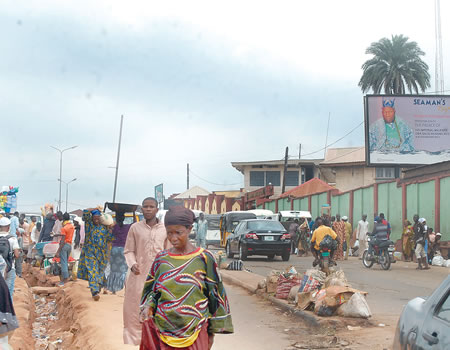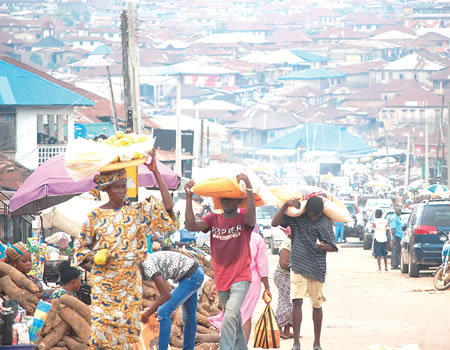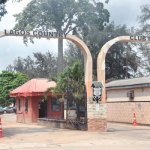In the Yoruba community of South West Nigeria, farming and commercial activities have been a major source of sustenance since the ancient times and there exists a variety of local markets but for them, the community is not complete without a market near the palace. YEJIDE GBENGA-OGUNDARE explores the cultural, economic and religious reasons for this. Her report.
- Non-existence of Oba’s market is cultural oversight and traditional minus —Dr Bayo Adebowale, founder of African Heritage Research Library and Cultural Centre (AHRLCC)
- It is traditional to have markets very close to the palace —Chief Mabinuori Adegboyega Aare Latosa, Mogaji Aare Latosa family, Ibadan
- Traditional markets are still relevant —Oloye Lekan Alabi, Agbaakin Olubadan of Ibadan land
The market institution has been an integral part of the Yoruba community and custom since time immemorial; even before the advent of money, when trading was done through barter and goods were sold on the path to the farm or in front of houses because there were no spaces set aside for marketing activities aside pathways and other sites that are thoroughfare for the people in the settlements.
Since this period, markets bacame mainstay of the Yoruba community as majority were farmers who could not eat their produce alone and had to exchange some for other commodities and services. And with the introduction of money into the economy and creation of permanent sites for marketing activities, the markets became more integral to every community.
The markets were not only the economic sustenance tools but they became the centre for information dissemination, town meetings, religious and political gatherings as well as social engagements. And consequently, specific days were set aside for market functions, making the periodic market the first to evolve within the Yoruba society; though the exact period it started cannot be easily traced in history.
History states that the periodic markets started when exchange of goods required a mutually convenient time and place and parties had to travel to a common place to trade and the importance of traders and consumers knowing where to meet became pronounced. Also, at this period, the periodic markets were sited very near the palace, which is the seat of power, or in front of it and this act is said to be very symbolic in the Yoruba community to the extent that every palace in Yoruba town has a market near it called Oja Oba meaning the king’s market.
This is based on popular belief that the king is the overseer of the economic activities of his people and consequently the market which is the mainstay of the community. After a while, daily markets sprouted up and now, the Yoruba people have diverse types of markets; the daily markets which the Oja Oba is a part of and is found in urban areas and larger towns, the night market, the rural night market, special markets and the rural periodic day markets.
Daily markets can run both at day and in the night and are scattered across towns and cities, periodic markets are mostly rural and run on specific days of the week or at regular days interval, the rural periodic is one where people come from various settlements on stipulated days interval and does not exist outside these days, special markets often take place at annual festivals and not after such events while night markets usually hold at the daily market sites but run from dusk to almost midnight.
According to them, since time immemorial, markets are situated near the palace so that the security of the king will easily extend to the people and also to protect them from attacks by other communities and vigilante or militant groups that use the porosity and relaxed aura of the market to perpetrate evil and steal at gun point.
Also, because wherever there are business activities and many people with diverse beliefs gather together in a place, there is bound to be disagreements and the situation of the market near the palace makes it easy for dispute resolution as the king who oversees the community and adjudicate in cases is nearer to them.
Speaking with the South-West on the origin of markets and why they are placed near the palace, an academic and founder of African Heritage Research Library and Cultural Centre (AHRLCC), Dr Bayo Adebowale went down the memory lane of myths and legend.
“There are several myths and legend surrounding the origin of palace markets in Yoruba land. Some of the myths and legends date back to the history of Moremi’s encounter with the Ugbo warriors who invaded Ile-Ife. Others trace the history of Palace Markets to the Ibadan warlord – Iba Oluyole – in whose honour Oja Iba (Oja-Oba) in Ibadan was named. But the most popular origin of Palace Market has been traced to the Sango/Oya love encounter at a market in Ibariba land in Tapa.
“The first Alaafin of Oyo – Sango – met his heart-throb, Oya, during a business transaction at a market in ancient Ibariba – Tapa land. Oya was wooed in a mysterious circumstance that day and lucky Sango eventually secured the beautiful Oya’s love and loyalty. The idea of the Oba establishing a market near the palace is speculated to have originated from that Sango – Oya encounter as Akesan Market in Oyo (very close to the Oba’s Palace) later sprang up as the first Oja-Oba in Yoruba land,” Dr Adebowale said.
Also following this train of thought is the Baale Of Ekotedo, Dr Taiye Ayorinde, who though stated he has little information on the reason for palace markets, however said that history has it that it was for security purposes.
“I really can’t say much on why the Yorubas have their major markets near the palace but what I learnt is that it is for security; the Obas palace is always well protected and in that time when there is war, market days are usually the targets as people are more relaxed and because the palace is well protected, the security extends to the market as palace security wards off such attacks,” he stated
Though it seems not to portray any taboo, situating markets by the palace among the Yoruba people is a culture that many believe cannot be eradicated in order for peace to reign within the community and for maintenance of culture and tradition.
And many Yoruba elders attest to the fact that a market must be near the King’s palace for the community to enjoy deep communion with the gods in issues of commerce and economy.
Non-existence of Oba’s market is cultural oversight and traditional minus —Dr Bayo Adebowale, founder of African Heritage Research Library and Cultural Centre (AHRLCC)
Why do Yoruba people site markets near the palace?
They do so for various reasons; to enlist the interest and support of the paramount ruler and to secure his blessing for abundant profit in business transactions in the market, to get regular patronage of the Oba’s subjects and his numerous visitors, from far and near, who daily throng to the palace on a daily basis, for social-cultural engagements and to secure the cooperation and protection of the gods whom the people perceive are very close to the Oba, the accredited representative of the divinity on earth (Igbakeji Orisa).
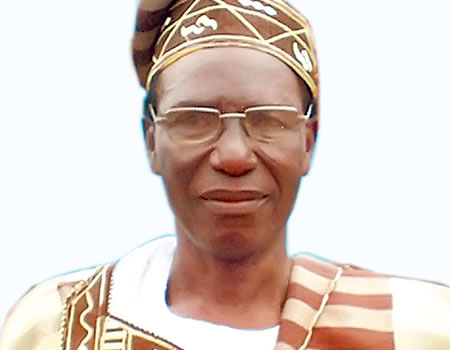
What significance do palaces have culturally, religiously and economically on the markets?
In the religious sense, palaces constitute the melting pot and the epicenter for religious activities (Islam, Christianity) but most importantly for traditional religionist who choose the venue of the palace to propitiate to the Divinity and the gods at intervals for business gains. It is people’s belief that cultural festivals held at the venue of the Oba’s palace regularly attract the attention and participation of both the community people as well as supernatural beings who are known to possess the power to bring good luck to the market people and consequently boost their economic and commercial activities. Also, war strategies were usually hatched at the palace as well as on the premises of the Oba’s market during the inter-tribal wars of the early 18th century in Yoruba land. For instance, during the Jalumi, Ijaye, Ekiti Parapo, Remo and Kiriji wars, where famous warlords like Ogunmola, Kurunmi, Ogboriefon, Adeyipo, Olugbode, Fijabi and Aare Latoosa prominently featured as important dramatis personae.
Is it a taboo for a palace not to have a market near it?
There is virtually no city/town ruled by a frontline Oba in Yorubaland which does not have an Oba’s Market (Oja Oba) Oba’s market carries along a lot of prestige which nobody can ignore, among the rank and file of the Yoruba people. But it is not a taboo for a palace not to have a market near it. It is only that the non-existence of an Oba’s market is always regarded by most people in Yoruba land as cultural oversight and a traditional minus.
Do such markets have any significance in these modern times?
Our cultural heritage and traditional beliefs are getting more and more eroded and encroached upon by the so-called Western civilisation (religion education etc) so much that not many people nowadays seem to care much about the age-old glory which the Obas market (Oja Oba) had enjoyed in the days of our forefathers. People in this modern times are generally unwilling to discuss the relevance, the importance and the significance of the Oba’s market to the society.
Are there any spiritual connotations?
Yes, there are. And these spiritual connotations are essentially an integral part of the Yoruba traditional religion. It is common in Yoruba myths and legend and also in Yoruba traditional religion that supernatural beings pitch their abode in the market; ghosts, spirits, demons, witches and wizards are known to participate in buying and selling activities during market transactions in Yoruba land. The people as a matter of fact look for their dead relatives and loved ones who pitch abode in market places. Some have gone to the extent of claiming to have seen the faces of their dead husbands, wives, children, relatives, friends and colleagues in markets haggling and negotiating prices of commodities. But maintaining also that upon identification by earthly people, they change their physical appearance, in a twinkle of an eye or disappear completely into thin air, to avoid recognition.
Can there be any negative fallout if there is no market near the palace?
There may not be any noticeable fallout but there is indirect fallout which might, somewhat somehow, reduce the prestige, the confidence and public acceptability of the Oba himself by the people he seeks to govern.
What benefit does the market have on the Palace?
The market affords the Oba the opportunity to mingle with the cream of his traditional subjects and to gain access to the people’s local products which are always on display at the market stalls and sold out to customers by hawkers around the market. These local products include kola nuts, bitter kola, sugarcane, honey, aadun, local soap, fowls, alligator pepper etc. The Oba’s market is capable of projecting the traditional image of the palace in several ways.
Won’t the market noise disturb the King?
The markets are not necessarily located on the compound and in the premises of the palace but a little way off the palace. It cannot therefore, disturb the Oba’s cultural proceedings which are normally held inside the palace enclave (Iyewu) and at the inner sections of the royal court.
It is traditional to have markets very close to the palace —Chief Mabinuori Adegboyega Aare Latosa, Mogaji Aare Latosa family, Ibadan
It is traditional to have markets very close to the palace. Spiritual wise, whatever they are doing in the palace spiritually also benefits the market because in our culture, they need to do a lot of rituals; to wade away evil, to ensure there is peace and tranquility and such things. Social wise, people had the pride that they patronize the king’s palace (oja Oba), though others have markets in other places but they take delight in patronising and selling their wares in the king’s market and they boast of this, you hear statements like, we do not patronize corner stores, we go to the king’s market. That pride is there.
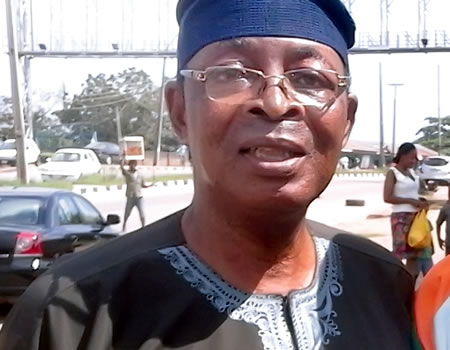
Another thing is this, security wise, people believe they are secure when they sell or buy at the Oba’s market because people will remind you if you want to make trouble that the king is at home and if you make unnecessary trouble, the Oba’s men will arrest you, so that’s security. Not only that, a lot of people prefer to shop within the vicinity of the Oba because in those days, the Oba is always around and you get to see the Oba and his family.
There is no Oba in Yorubaland that doesn’t have a market near his palace. In Oyo, we have Akesan market, just in front of the Alaafin palace, we have Oja Oba in Ibadan and in all the Yoruba speaking states, you always have the market near the palace.
With civilisation, are they still important economically and tradition wise?
It depends on the way you look at it, now, for instance, imagine what is going on in Bodija market that you don’t have a king there, everyday, they have series of issues especially from fraudsters. Recently, there was the news that fraudsters went there and defrauded the traders to the tune of over N4 million but if it was a market near the palace, even with civilisation, we will see someone that will move to the king’s palace and there will be a solution, that is the security aspect of it. Then, you will notice that the frequent crisis they experience at Bodija market often, they do not have this at Oja Oba in spite of the various tribes that cohabit there. Another example is the Akesan market, they will quickly warn you if you want to start trouble that you cannot do that in front of the palace and disturb the king’s peace.
Then, in our tradition, when there is an event, you need to dance to the kings’ palace and other major places and once you get to the king’s palace, you will get to the market automatically, then you can boast that the town was aware of your event since the market is always a beehive of activities and the nerve center of the town.
It also helps to maintain standard because in those days, you cannot sell your wares anyhow you like, exploit buyers or be rude to them like in other markets. There’s a standard because you are near the seat of authority and they can report you. This helps till now
What of where kings don’t live in the palace?
That is what you know, a lot of people do not believe this, once a palace is there, the oba is there because there’s a representative of the Oba that informs him of what goes on and take necessary steps as guided by the king. Whether the king is there or not, it is still a seat of power; the power is still there because there should be a representative there.
Traditional markets are still relevant —Oloye Lekan Alabi, Agbaakin Olubadan of Ibadan land
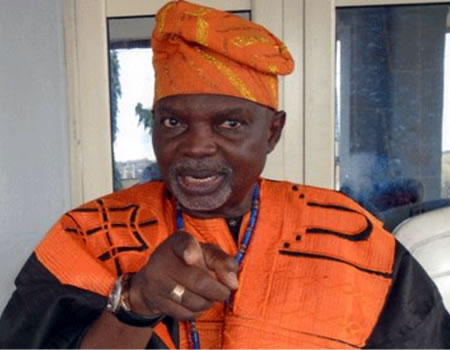
The proximity of markets to palaces in Yorubaland is a tradition that started from time immemorial before the advent of colonialists. Kings, otherwise called Obas or Baales were the spiritual, cultural, traditional monarchial representatives of their communities, remember the appellation, Oba igbakeji orisa meaning second to God almighty and because kings are the custodian of their peoples’ tradition, culture, religion and economy. So that they were sharing boundaries and views as well as opinions with the baale’s and kings gave the people a sense of pride in their commercial activities and boosted the economy.
Since they were next door to the Oba’s palace, they have class because the aura of the Oba will naturally rub on the traders, their customers and even their wares. So you can see the attachment and the sensibility of the Yoruba people that the economy is important to the sustenance of the family and the society. So remember the hub which includes the traders, customers and the noise (ariwo oja) that we talk about keeps the palaces, the royal family and every other person alive. And then the beauty of these traditional markets, unlike what we now have in modern day as complexes and malls where you wear uniforms that are not part of our culture. In traditional markets, people will come wearing their best dresses especially when you are going near the palace, you can’t take away the glitz, minus the economy and sustenance of life
Does this have any effect today?
The traditional markets still have their power and relevance but remember, civilisation and the so-called westernisation are plastic, hackneyed and mechanical, they are not natural. That is why once there is a breakdown in electricity supply particularly in this part of the world, the things become moribund and ordinary unlike in traditional markets where they are sold fresh. You can’t compare them with the western world where power supply is 24 hours and everything works, so we are trying to copy western world but we do not have the sustainability but if you still go hinterland, go to Oja Oba in Ibadan, go and see life in its natural form; honey sellers, meat sellers, vegetable sellers, mat sellers etc, the way they do their trade is our culture and if you go to some places in Europe and London, we have areas where street trading is still allowed on particular days, you still get the traditional market feelings.
WATCH TOP VIDEOS FROM NIGERIAN TRIBUNE TV
- Let’s Talk About SELF-AWARENESS
- Is Your Confidence Mistaken for Pride? Let’s talk about it
- Is Etiquette About Perfection…Or Just Not Being Rude?
- Top Psychologist Reveal 3 Signs You’re Struggling With Imposter Syndrome
- Do You Pick Up Work-Related Calls at Midnight or Never? Let’s Talk About Boundaries

